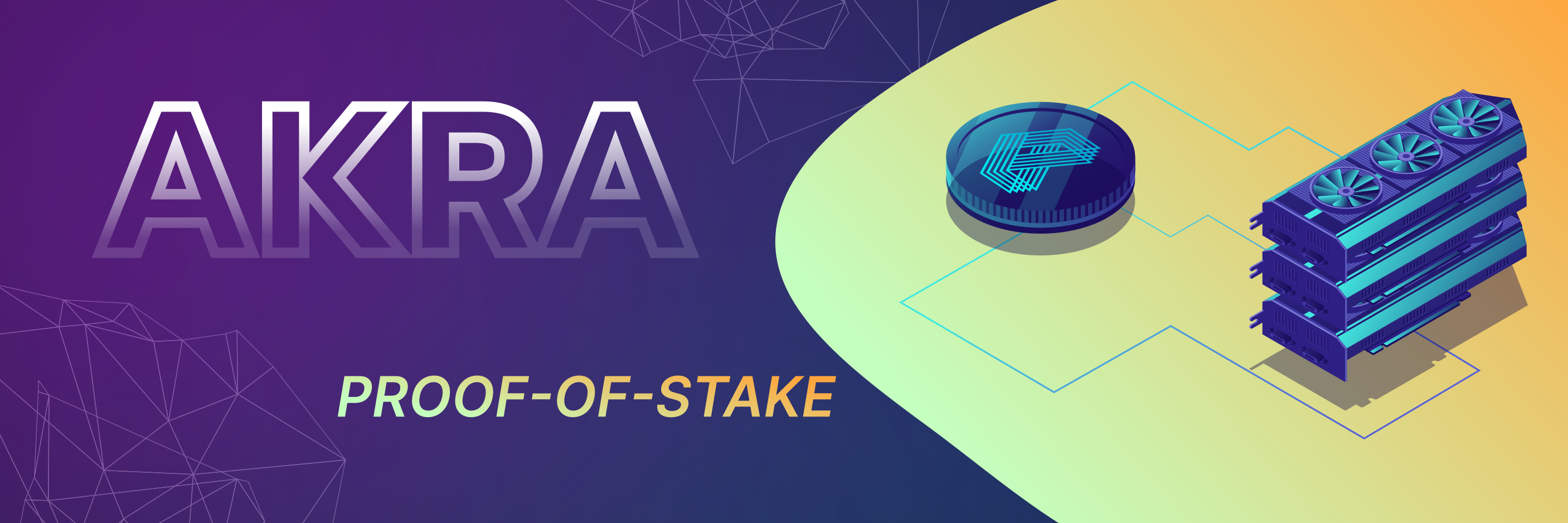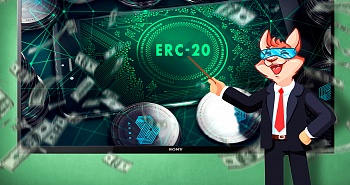What is AKRA cryptocurrency staking

Staking is a tool that ensures the efficiency of the blockchain and involves obtaining passive income with a high level of profitability by storing funds in a cryptocurrency wallet. Staking can be conditionally compared with a bank deposit, where the reward depends on the life of the deposit.
AKRA cryptocurrency staking is used in blockchain networks with a Proof-of-Stake consensus algorithm. PoS is a method that protects the blockchain and the cryptocurrency from interference and unreliable data being posted. By choosing a network with this algorithm, holders of cryptocurrency funds are rewarded for storing a certain amount in a cryptocurrency wallet in the form of tokens. In this, participants do not use expensive specialized hardware, new blocks are generated and transactions are processed without the use of large computing power. And that is the main difference between staking and mining. Staking is therefore characterized by low power consumption, while mining systems based on the Proof-of-Work algorithm, on the contrary, consume enormous amounts of energy.
AKRA staking (PoS) requires no special knowledge and is therefore accessible even to those taking their first steps into blockchain. Mining (PoW), in turn, involves:



All of these resources increase in value each year.
The entry threshold for earning on the AKRA cryptocurrency using the PoS algorithm is quite low, small investments and an e-wallet are required. On the contrary, to start mining, you will have to invest heavily in equipment — video cards, ASIC chips, mining farms... In addition, constant technical support and maintenance of computing resources are necessary, these are also tangible costs. But despite the investments, there is still no certainty that the investments will pay off and generate a profit in today’s reality.
Of course, there are blockchain projects that involve the storage of large enough cryptocurrency assets comparable to the purchase of mining equipment. But there are not so many of them, and most networks using the Proof-of-Stake algorithm make it possible to invest relatively small funds.
The current trend in the crypto industry is to switch from mining and the PoW algorithm to staking, which has proven to be a convenient, fast, and inexpensive way to generate income from cryptocurrency activities.
The AKRA staking process operates on the principle that the more tokens a participant of the blockchain network holds, the more likely they are to get a new block, and the greater their influence during votes related to the future development of the blockchain project.
AKRA cryptocurrency staking does not guarantee high returns. But getting passive income from investments an order of magnitude higher than from traditional bank deposits is a good result.
Profits depend on the number of AKRA tokens on the cryptocurrency wallet and the period of their storage.

Fixed staking

Blockchain systems define their own requirements and conditions for staking, but in any case, cryptocurrency is locked up for a certain period of time. There are three main options for earning money by storing cryptocurrencies: fixed, indefinite, and DeFi staking. For AKRA cryptocurrency, we offer fixed staking, and here’s the gist of it.
With fixed staking, there is an exact final date until which the crypto coins will be frozen. The AKRA token holder chooses the period, but the funds cannot be withdrawn or used for trading during this period. If the user completes the staking before the set date, they will not receive any income. After the selected period, the assets are automatically returned to the cryptocurrency wallet along with a fixed fee.
This type of staking is the most popular.
Risks of staking
Volatility is the main risk associated with cryptocurrency activity, where there is no way to instantly unlock a stake if a downtrend starts and the digital currency drops in price.
To profit from staking, the user can give the validator the right to dispose of the stake, the so-called delegated staking. But there is a risk that the validator will turn out to be a scammer and will not pay the required percentage of income.
On reliable blockchains, on the basis of which AKRA tokens are created, it is not supposed to transfer funds directly to the validator. They can use the resulting stake to boost their power but are not allowed to manage other people’s assets. If the validator asks to transfer funds, you should be wary.
Another risk is the loss of account. Almost all modern services make it possible to regain access by providing a private key or mnemonic phrase. Nevertheless, one should make copies of passwords, keys, and mnemonic phrases and keep them safe from strangers, but with the AKRA wallet, you can restore access via email or phone, which prevents the possibility of losing access to the wallet.














